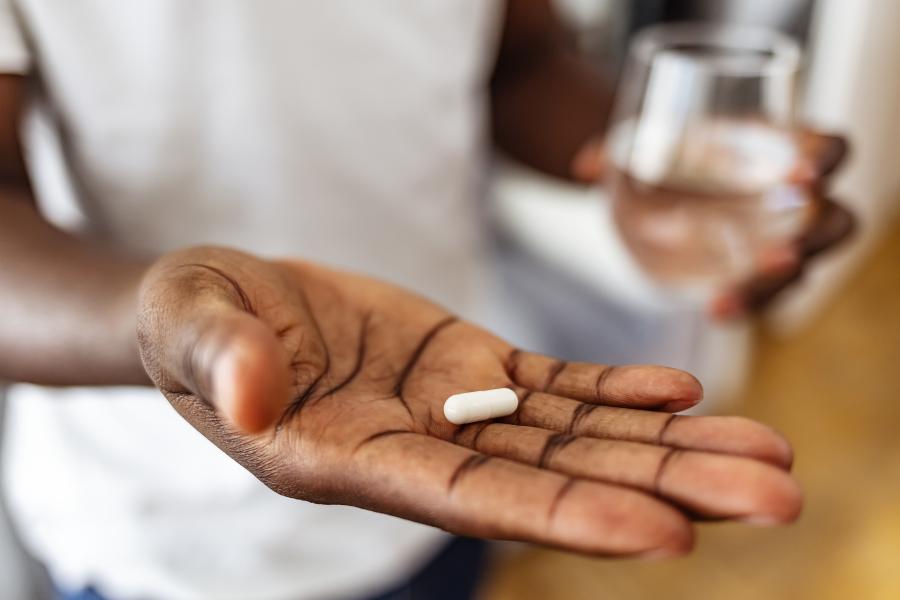Managing medications properly is crucial for maintaining good health, especially when receiving care from a Doctor at home Dubai. Whether recovering from an illness or managing a chronic condition, taking medications correctly ensures effectiveness and minimizes risks. This guide provides expert-backed tips to help patients and caregivers handle medications safely and efficiently in a home setting.
Understanding Medication Management with a Doctor at Home
When a doctor at home prescribes medications, they tailor the treatment plan to the patient’s specific needs. Proper adherence to these medications is essential for recovery and long-term health. However, without proper guidance, mistakes can happen, leading to ineffective treatment or complications.
Reading Prescription Labels Correctly
One of the first steps in medication management is understanding prescription labels. A doctor at home will provide clear instructions, but patients should also double-check:
- Dosage information – How much to take and how often.
- Timing – Whether to take the medication before, during, or after meals.
- Expiration date – Never use expired medications.
- Storage requirements – Some medications need refrigeration, while others should be kept in a dry place.
Misinterpreting labels can lead to under or overdosing, so always clarify doubts with the doctor at home or a healthcare professional.
Organizing Medications for Better Adherence
Keeping medications organized prevents missed or double doses. Here are some practical tips:
- Use a pill organizer – Sorting medications by day and time helps track intake.
- Set reminders – Alarms or smartphone apps can notify patients when it’s time to take their medicine.
- Maintain a medication log – Recording each dose ensures consistency and helps the doctor at home monitor progress.
For elderly patients or those with complex medication schedules, a caregiver can assist in organizing and administering doses correctly.
Safe Storage of Medications at Home
Proper storage is critical to maintaining medication efficacy. A doctor at home will advise on specific storage conditions, but general guidelines include:
Keeping Medications Away from Children and Pets
Many medications can be harmful if ingested accidentally. Always:
- Store medicines in child-proof containers.
- Keep them in a high cabinet or locked drawer.
- Avoid leaving pills on countertops or bedside tables.
Controlling Temperature and Humidity
Some medications lose potency if exposed to heat or moisture. Follow these storage tips:
- Room-temperature storage – Most pills and capsules should be kept in a cool, dry place.
- Refrigeration – Certain liquids and injectables require refrigeration (but never freeze them).
- Avoid bathrooms – Humidity from showers can damage medications.
A doctor at home can provide specific storage instructions based on the prescribed treatment.
Taking Medications as Prescribed
Even with the right medications, improper usage can reduce effectiveness. Here’s how to ensure correct administration:
Following the Recommended Schedule
Timing is crucial for medications to work as intended. Patients should:
- Take antibiotics at evenly spaced intervals to maintain consistent blood levels.
- Follow time-sensitive medications (like thyroid or diabetes drugs) as directed.
- Avoid skipping doses, even if symptoms improve.
If a dose is missed, patients should consult their doctor at home instead of doubling up on the next dose.
Understanding Food and Drug Interactions
Some medications interact with food, altering their absorption or effects. Key considerations include:
- Empty stomach – Certain drugs work best when taken an hour before or two hours after meals.
- With food – Others may cause nausea unless taken with a light snack.
- Avoiding specific foods – Grapefruit, for example, can interfere with some medications.
A doctor at home can clarify whether dietary adjustments are necessary.
Communicating with the Doctor at Home
Open communication ensures medications are working as intended. Patients should:
Reporting Side Effects or Concerns
Even mild discomfort should be reported to the doctor at home. They can adjust dosages or switch medications if needed.
Updating Medication Lists
If a patient is taking multiple prescriptions, supplements, or over-the-counter drugs, they should inform their doctor at home to avoid harmful interactions.
Traveling with Medications
For those who need to travel while on medication, planning ahead is essential:
- Carry medications in original labeled containers.
- Bring extra doses in case of delays.
- Keep a copy of the prescription handy.
A doctor at home can provide a travel letter explaining the need for certain medications, especially when flying.
Disposing of Unused or Expired Medications Safely
Keeping old or unused medications can be dangerous. Proper disposal methods include:
- Returning them to a drug take-back program.
- Mixing with an unpalatable substance (like coffee grounds) before throwing them away.
- Avoiding flushing medications unless specified.
A doctor at home can guide patients on safe disposal practices based on local regulations.
Final Thoughts
Proper medication management is a key part of treatment, especially under the care of a Doctor at home service. By understanding prescriptions, organizing doses, storing medications safely, and maintaining clear communication with healthcare providers, patients can maximize the benefits of their treatment while minimizing risks.
Following these expert tips ensures a smoother recovery and better long-term health outcomes. Always consult the doctor at home for personalized advice tailored to individual medical needs.









